Are We Becoming More Robotic? Are Robots Becoming More Human? - The Delicate Quandary and Relearning The Art of Mindfulness
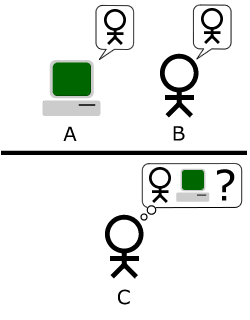
I actually got inspired with the idea for this post when I came across this xkcd comic:
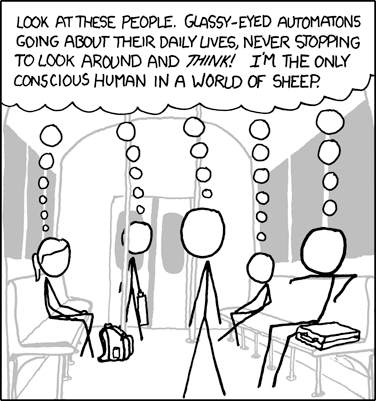
Lately, I’ve been reading a lot on AI and coupled with my work on SteemMag about bots, writing a post on this looked like a fascinating adventure.
Are We Becoming More Robotic?

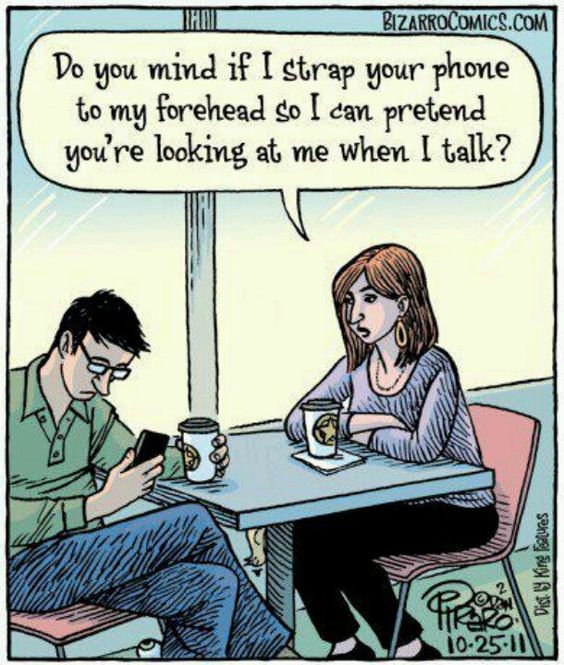
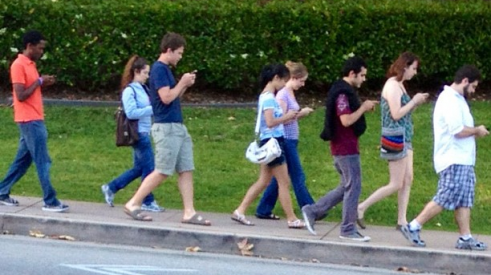
(Your answer?)
The Need For An Inverse Turing Test
Brett M. Frishman , a professor at the Cardozo school of law published a paper titled: Human-Focused Turing Tests: A Framework for Judging Nudging and Techno-Social Engineering of Human Beings
In it, he argues that there is a need to repurpose the Turing test in a manner that will allow its usage on humans. The Alan Turing test was formed in 1950 by a computer scientist, Alan Turin. In a research paper, he proposed a test – a set of questions that would help distinguish between a robot and a human. This test has become very popular in the world of AI where scientists use it to measure the ability of robots to mimic humans….
Frishmann believes that with the large-scale 21st-century dehumanization of humans, it is necessary for us to see how fast we are mimicking robots.
Dehumanization Is Real
Here is a very disturbing quote from a BBC article on the exposure of Amazon workers to mental illness.
"We are machines, we are robots, we plug our scanner in, we're holding it, but we might as well be plugging it into ourselves", he said.
"We don't think for ourselves, maybe they don't trust us to think for ourselves as human beings, I don't know"
We can find this robotic way of life not only in workplaces but also in our lives. Have you caught yourself performing an action without giving it a thought?
Of course, our brains are structured in a way to make repetitive actions automatic to save us the stress. However, it becomes saddening when important interactions are being reduced to an emotionless string of actions.
An example of this mindless action was stated by a popular article by Qz:
One seemingly innocuous example is electronic contracts: Those pages that ask you to click and agree to terms and conditions before proceeding with a download or update. “You see a little button that says ‘click to agree’ and what do you do? You click. Because it’s a stimulus response,” says Frischmann. “It’s easy to dismiss those things. But the fact that every day, you and I and millions of other people routinely respond to a stimulus and click and go without understanding what we’re getting ourselves into, we are behaving like machines. We’re being, in a sense, conditioned or programmed to behave that way.
Obsession With Efficiency
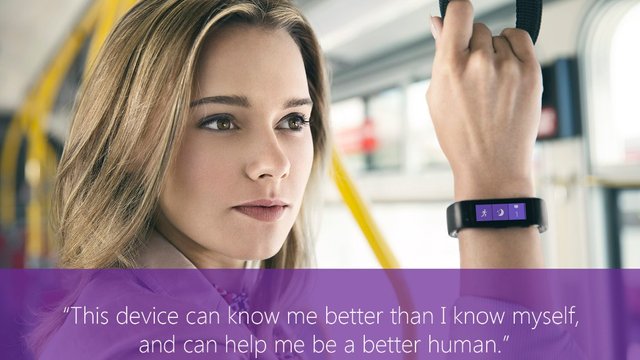
Behind this increasing dehumanization is not only our addictive love for technology but also our obsession with efficiency.
Humans are costly. Why have them produce stuffs when you can reduce costs by automating with robots?
We can’t dispute the fact that technology makes our work easier and more efficient…However, it is this love for convenience and profit that’s fueling the creation of new technologies. (A welcome development. though)
Another Perspective
Joanna in an article argues from another perspective. Humans are known to fancy heuristics –short cuts. In a way, studying AI and automating our efforts help improve our rationality and efficiency.
In a way, robots are helping us become less robotic in our workplace – removing the drudgery and boredom associated with repetitive manual processes.
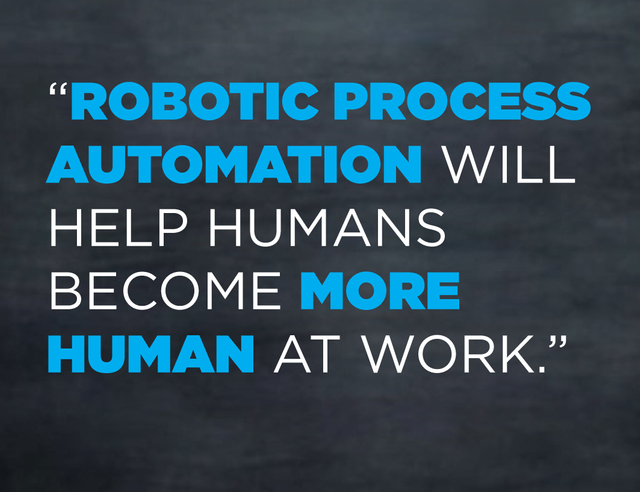
Are Robots Becoming More Human?
The Loebner Prize is an annual competition in artificial intelligence that awards prizes to the chatterbot considered by the judges to be the most human-like.
Simply, the competition rewards the smartest scientist who perfectly fools and tricks us.
LOL
A lot of Steemians can relate to this. Before the introduction of the reputation level, a lot of Steemians actually responded to Wang, the nice, friendly introduceyourself-bot.
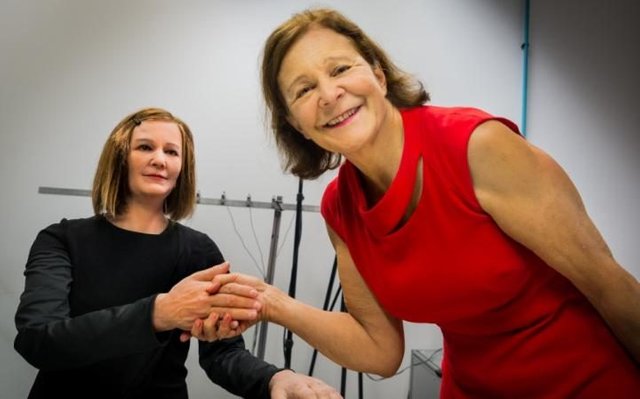
The picture above is that of Nadine, a human-like robot, and a journalist. Currently a receptionist in a university, Nadia was created by a professor in Singapore.
With her soft skin and flowing brunette hair, Nadine does not only meet and greet visitors, smile, make eye contact and shake hands, but she can even recognize past guests and spark up conversation based on previous chats.
Unlike conventional robots, Nadine has her own personality, mood and emotions. She can be happy or sad, depending on the topic.
Experts posit that having robots such as this can in fact be a good thing. Robots can contribute significantly to high productivity levels and lesser work hazards.
So instead of worrying that robots are going to deprive us of our jobs and render of useless, we should focus on making good use of them.
A Pew Research Centre study on the future of jobs indicates that technology can actually create more high-paying jobs than the low-paying jobs it eliminates….
So in a way, this shouldn’t be an “either-or decision” ….. Robots are here to stay and we can only get better at maximizing their benefits.
As put by Carme Torras of the Robotics institute:
The danger is not that the robots will become more human and attack us, but that humans become robots, that they limit their actions to the simulated world inhabited by robots. Robots should increase the abilities of people and give us more autonomy, instead of decreasing it.
A Guide to Being Human in the 21st Century by Nate Hagens
Maintaining personal relationships, in particular, is a costly but ultimately valuable aspect of being human. “If we lose our ability to relate to each other along the way, because it’s efficient and cheap, we lose something of who we are.”
Re-learning the Art of Mindfulness
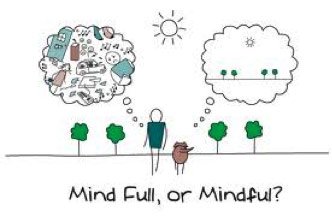
There are thousands of articles online that tell us how mindfulness improves our wellbeing, physical and mental health. Stuffs like this:
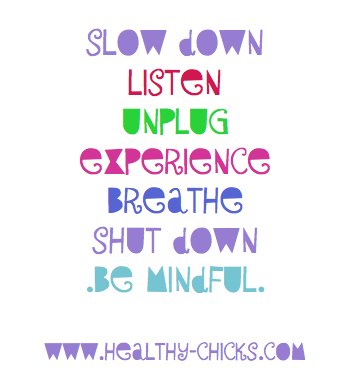
And this:

We are all affected by this state.
In all, we just have to find a way of improving our awareness, listening, immersion and observation skills.

;)
What do you think? Are We Becoming More Robotic? Are Robots Becoming More Human? Have you caught yourself doing something mindlessly?
Sources:
http://www.loebner.net/Prizef/TuringArticle.html
http://www.bbc.com/news/business-25034598
http://www.debate.org/opinions/are-we-slowly-becoming-robots
qz.com/740401/instead-of-asking-are-robots-becoming-more-human-we-need-to-ask-are-humans-becoming-more-robotic/
https://betterworkingworld.ey.com/better-questions/robots-help-business-be-human
http://www.telegraph.co.uk/science/2016/03/12/meet-nadine-the-worlds-most-human-like-robot/
https://techcrunch.com/2016/07/23/the-assimilation-of-robots-into-the-workforce-as-peers-not-replacements/
http://lameva.barcelona.cat/bcnmetropolis/en/entrevista/el-risc-que-els-humans-ens-tornem-robots/
http://www.pocketmindfulness.com/6-mindfulness-exercises-you-can-try-today/
http://www.helpguide.org/harvard/benefits-of-mindfulness.htm
Wow. I'm very impressed, amazing post! It reminds me of this cartoon that I saw a few days ago
I can't deny that I am a lover of technology myself, but often this is really going too far. Teenagers nowadays spend more time on their devices than actually talking to their friends, and people have become SO dependant of always having GPS + Google + thousands of apps available to help them go through life easier!
I also practice mindfulness myself, reading and learning about it has been a very important experience that I think everyone should make!
Followed you, thank you for such an interesting post. keep it up
I'm glad you liked it.... You're right. Sometimes, I wonder what will happen to the emotional senses of the 90's and '00 kids with their exposure to so much tech devices. Will they eventually get their ability to humanly connect numbed out? I'm in this range too and it would be interesting to see how we evolve in the next decade or so.
Thanks for the follow btw. :) You're a great writer.
I think someone is making trumendous job using ppls lazinest.
2 days ago I took my son on the balcony. Next to it is a little forest. We were sitting there for almost 1 hour and just looking at trees, birds and of course airplaines (my son is 16 months old and love the sound of it). My mind was calm I felt great!
Wow. I crave that feeling now.... ;) Our best shot at being calm and feeling at peace is by connecting more to nature. Thanks for taking the time to read.
Indeed a timely article as we approach the impending singularity and Elon Musk has already made the decision to "run away" from these problems and abandon Earth for Mars asap. Is he right?
Should we be as fearful of the prospect of A.I. and/or robots becoming the Alpha lifeform on our planet within our lifetimes?
I think what your post sparks is the debate on what it now means to be "human".
For example, I am already a cyborg of sorts. I have two artificial lenses in my eyes, I am an enhanced human hybrid. Soon, actually already, prosthetic limbs are being 3-D printed. Developments at DARPA are astounding.
Virtual reality has arrived, and now, with Pokemon Go... Augmented reality is a very viable alternative.
A Digital overlay on our current "human" reality model.
I already envisage a future... very soon... within the next ten years at most, where you will be able to digitally enhance the view out of your window, (to change a rainy day to a sunny one for example), by digitally augmenting (upscaling of current Pokemon Go technology) said view.
Imagine the possibilities for enhancing your physical body. No more surgery, no more aging... simply digitally enhance the view of yourself and overlay it on the current reality model.
Maybe I am going off on a slight tangent, but I do not believe all robots to be/will be physical models.
My fear is twofold. One, akin to Elon Musk, that A.I. technology and advancements falls into the wrong hands or is controlled by a small elite for selfish purposes.
Secondly, that like a young child, we somewhat innocently and naively believe that an "older brother or sister" (superior A.I. lifeform) will play our game, by our rules, and somehow agree to let us win all the time.
I believe it is inevitable that to evolve as a species, we will increasingly need to "robotize" ourselves, and eventually pload our consciousness into non-biological "bodies". Why? As we continue to explore space, our present host biological bodies simply aren't up to the job.
Secondly, we have already arrived at "data shock"... 4 trillion webpages + How to assimilate this information?
Our current bodies are fantastic input devices... eyes and other senses processing millions of data per second... but our OUTPUT devices? WOEFUL! ... Consider the amount of time it is taking me to sit here and type this, or if we were face-to-face, to say it all. Our multi-tasking output capabilities in our current human form simply do not and cannot match the exponential growth of "input" content.
I suggest, for the survival and evolution of our species, robotic enhancement, by whatever means, is inevitable. Will it dehumanize us or will A.I. remain "benign" is another matter entirely.
The world is moving forward it has always been my belief if you can dream or write about it can one day be a reality. As humans we are only limited by the imagination of our own minds.
Good points. But it can be beneficial to be robotic in some aspects of our lives. Einstein and Steve Jobs both had multiple versions of the same outfit, so they didn't have to think about what to wear and could be mindful of the things they saw as important. Mindfulness and robotic behavior can complement each other. But you're probably right, more mindfulness is needed in the world. Let's just not accept it blindly, without giving it due consideration ;)
Yeah. You're right. Both of your conclusions are supported in the article.
The line has been wonderfully blurred, hasn't it? Articles and phone calls by robots have made it past my radar while human connection becomes more strange. So yes, robots are already indiscernible from humans in certain areas and business culture, especially, is welcoming more robotic behavior on the part of humans.
I used to be determined to reduce my life to a series of repeatable actions. I worked at a newspaper, an ideal environment for such an endeavor. I made a gameboard for each day and had a little eraser I would move from step to step as I completed my day. "Gamification" is the word at my husband's workplace. He says he wants to punch the human signs we pass while driving. When we moved to the country, I tried to routinize my homesteading the way I had my city life. No chance. And Thank God. I even go on adventures, now. :)
Great to hear you're taking active steps to control activities in your life. It's only by doing this that we can improve our mindfulness. We still can't avoid the inbuilt robot-like actions we perform though and its nice to you;re having fun with that.
I'm grateful you opened this discussion because I think the line between human and robot is in many ways artificial. I love that you're drawing attention to it so that people will examine what I think of as a fascinating topic. Thank for responding to my comment, too. :)
You're right 100%.
I laughed when I read this:
I'd like to see this test)
LOL. Its really hilarious but its kinda the sad truth.
Nice post. I think perhaps some humans are disconnected, but in another way, I lived through the nineties in America. People got in their cars, rolled out their garage door, drove to work, rolled back into the garage and closed the door.
We were so isolated from each other and in most cases, those digital devices are providing, as surface level as it may be, more connections with more people.
In addition, by fearing the robots taking our work, we risk becoming Luddites, I think, trying to hold the world in the era of horse and buggy, worried that mass trans would destroy the human race, but look at us now!
We have to look to the future and figure out, what does a future without labor for sustenance economies look like? Perhaps we can get back exploring our universe, discovering new and better ways to live in it, while the machines produce the goods we need to live our lives, cheaper and more efficiently than we ever could.
Have we forgotten, after all, which came first? We invented them, not the other way around. The only way they take our "place" is if we find our identity in the struggle for survival represented by the modern work world, where so many jobs have no real existential meaning, no fulfillment and no upward mobility. I for one, welcome the robot overlords, they can cut my grass while I finish my next novel.
Lol. I love your last sentence. That in fact, should be the major takeaway from the post.
We make machines so we become less like machines :)
But obviously it's not turning out that way.
Or maybe it will... fingers crossed